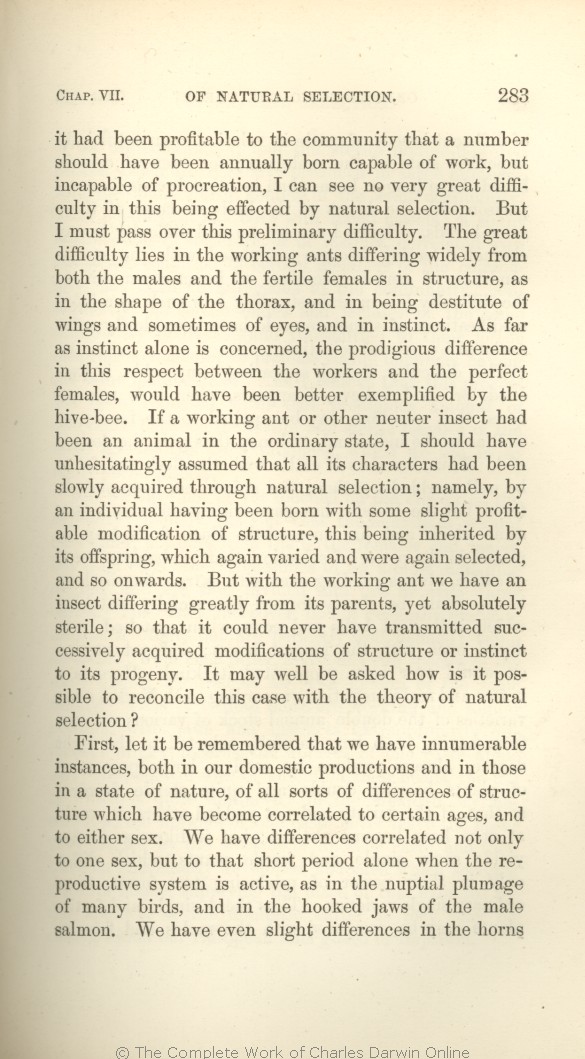it had been profitable to the community that a number should have been annually born capable of work, but incapable of procreation, I can see no
very great | very great 1859 1860 1861 1866 | | especial 1869 1872 |
| being effected by 1859 1860 1861 1866 |
| having been effected through 1869 1872 |
| thorax, 1866 1869 1872 | | thorax 1859 1860 1861 |
| prodigious 1859 1860 1861 1866 | | wonderful 1869 1872 |
| ..... 1861 1866 1869 1872 | | far 1859 1860 |
| animal in the ordinary state, 1859 1860 1861 1866 |
| ordinary animal, 1869 1872 |
| an 1859 1860 1861 1866 | an 1869 1872 |
| individual 1859 1860 1861 1866 | | individuals 1869 1872 |
| some 1859 1860 1861 1866 | some 1869 1872 |
| modification 1859 1860 1861 1866 | | modifications, 1869 1872 |
| of structure, this being 1859 1860 1861 1866 |
| which were 1869 1872 |
| its 1859 1860 1861 1866 | | the 1869 1872 |
| offspring, 1859 1860 1861 1866 | | offspring; 1869 1872 |
| which 1859 1860 1861 1866 |
| and that these 1869 1872 |
| were again 1859 1860 1861 1866 | | again were 1869 1872 |
| on wards. 1866 | | onwards. 1859 1860 1861 1869 1872 |
| sterile; 1859 1860 1861 1866 1869 | | sterile, 1872 |
|
|
First, let it be remembered that we have innumerable instances, both in our domestic productions and in those in a state of nature, of all sorts of differences of
structure which have become correlated to | structure which have become correlated to 1859 1860 1861 1866 |
| inherited structure which are correlated with 1869 1872 |
| to 1859 1860 1861 1866 | | with 1869 1872 |
| to 1859 1860 1861 1866 | | with 1869 1872 |
| to 1859 1860 1861 1866 | | with 1869 1872 |
| alone 1859 1860 1861 1866 | alone 1869 1872 |
|









